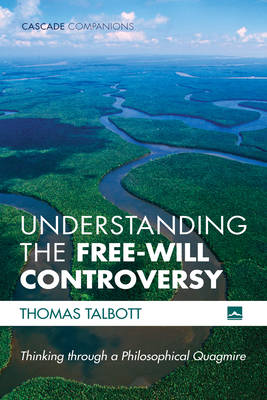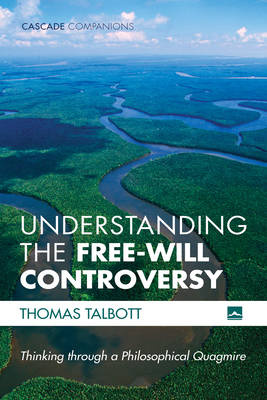
Je cadeautjes zeker op tijd in huis hebben voor de feestdagen? Kom langs in onze winkels en vind het perfecte geschenk!
- Afhalen na 1 uur in een winkel met voorraad
- Gratis thuislevering in België vanaf € 30
- Ruim aanbod met 7 miljoen producten
Je cadeautjes zeker op tijd in huis hebben voor de feestdagen? Kom langs in onze winkels en vind het perfecte geschenk!
- Afhalen na 1 uur in een winkel met voorraad
- Gratis thuislevering in België vanaf € 30
- Ruim aanbod met 7 miljoen producten
Zoeken
€ 29,45
+ 58 punten
Uitvoering
Omschrijving
What is free will and do humans possess it? While these questions appear simple they have tied some of our greatest minds in knots over the millennia. This little book seeks to clarify for an audience of educated non-specialists some of the issues that often arise in philosophical disputes over the existence and the nature of human free will. Beyond that, it proposes a particular solution to the puzzles. Many philosophers have argued that free will is incompatible with determinism, and many have also argued that it is incompatible with indeterminism. So, is free will simply an incoherent concept? Talbott argues that the best way out of this quagmire requires that we come to appreciate why certain conditions essential to our emergence as free moral agents--conditions such as indeterminism, ignorance, and a context of ambiguity and misperception--are themselves obstacles to a fully realized freedom. For a fully realized freedom requires that, as minimally rational individuals, we have learned some important lessons for ourselves; and once these lessons have been learned, some of our freest choices may be such that we could not have chosen otherwise because so choosing would then seem to us utterly unthinkable and irrational.
Specificaties
Betrokkenen
- Auteur(s):
- Uitgeverij:
Inhoud
- Aantal bladzijden:
- 140
- Taal:
- Engels
- Reeks:
Eigenschappen
- Productcode (EAN):
- 9781725268364
- Verschijningsdatum:
- 16/08/2022
- Uitvoering:
- Paperback
- Formaat:
- Trade paperback (VS)
- Afmetingen:
- 127 mm x 203 mm
- Gewicht:
- 158 g

Alleen bij Standaard Boekhandel
+ 58 punten op je klantenkaart van Standaard Boekhandel
Beoordelingen
We publiceren alleen reviews die voldoen aan de voorwaarden voor reviews. Bekijk onze voorwaarden voor reviews.









